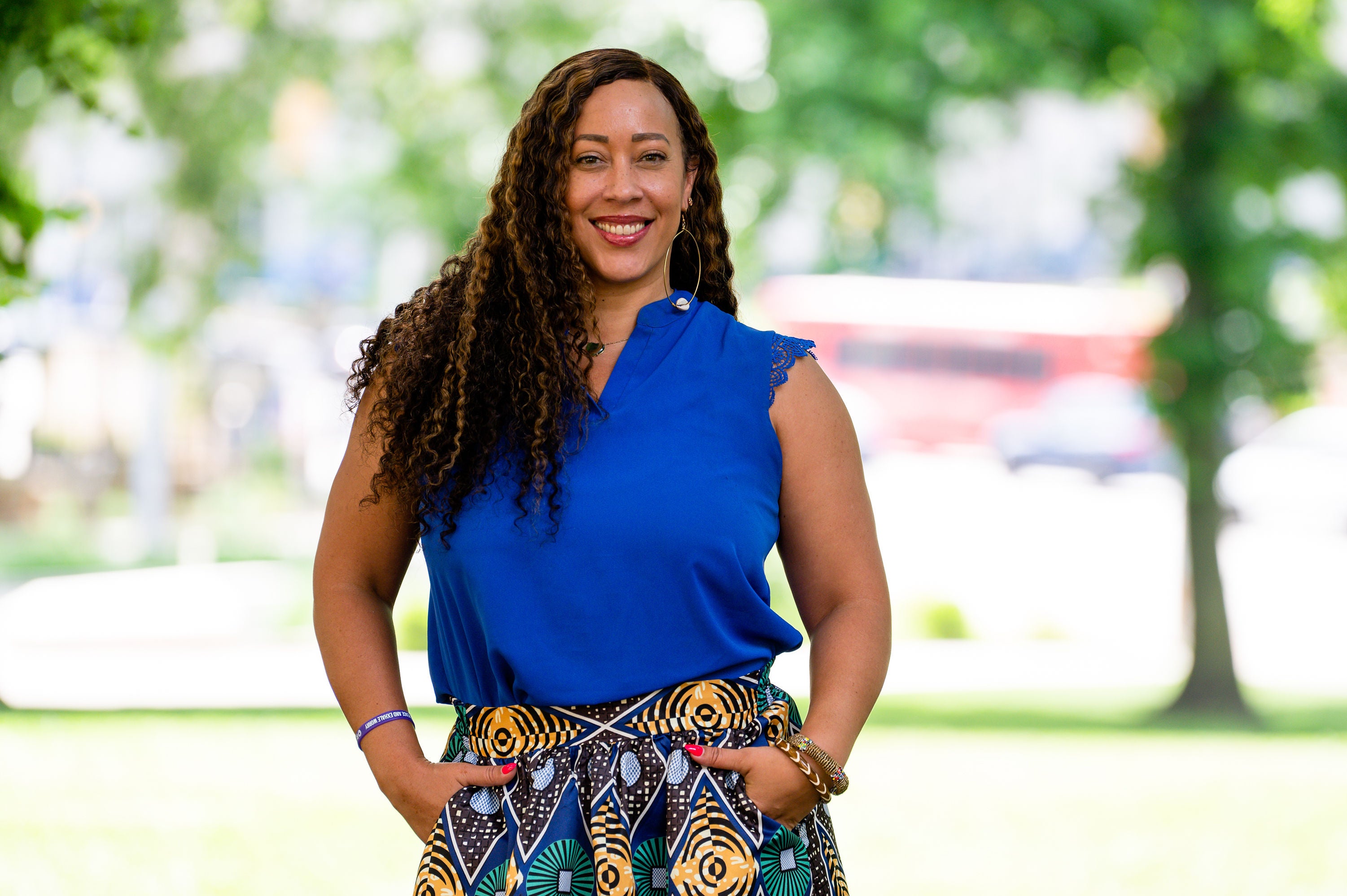Dr. Kyaien Conner has built her career working to transform mental health care for communities of color. At Pitt, she serves as professor, Donald M. Henderson Endowed Chair, director of the Center on Race and Social Problems, and associate dean for justice, equity, diversity and inclusion. Her research centers on innovative approaches to address critical health disparities, focusing on developing culturally responsive interventions that build community capacity and challenge traditional healthcare delivery models. By centering the experiences of African American and Latino/Hispanic populations, Conner’s work seeks to fundamentally reshape how mental health support is conceptualized and delivered.
“My work really focuses on health equity, looking at better understanding and ultimately mitigating barriers to service utilization,” Conner explains. Her research journey began through her clinical experiences, where she witnessed the challenges faced by marginalized communities in accessing culturally sensitive mental health support. “I didn’t initially see myself as a researcher,” she reflects, “but witnessing disparities in access to care made me want to engage in research to better meet the needs of diverse communities.”

A key focus of Conner’s work is building capacity within communities to address mental health, particularly within communities of color. One innovative approach Conner is pursuing is training lay health workers—people from within the community who may not have formal degrees in social work or psychology but are trained to provide behavioral health support. These individuals are often called “peer educators” or “promotoras” in Latinx communities. “These are folks that are living in the community, that care about their community, that want to give back and are willing to be trained to provide support services,” Conner says. Her research shows that peer support models, like those used in her projects, can support the community’s mental health while also reducing the burden on the often-overburdened mental health system.
Conner is also engaged in cutting-edge research projects that aim to address health disparities and promote equity in care delivery. Currently, she is collaborating with the Alzheimer’s Disease Research Center (ADRC) on several newly funded initiatives to address barriers to dementia care in older Black communities. “We have a number of research projects…looking at addressing disparities in Alzheimer’s disease and related disorders and access to dementia care,” Conner shares, noting her excitement for how this work will evolve and expand. In addition to her efforts in Pittsburgh, Conner is finalizing a major project in Florida funded by the Patient-Centered Outcomes Research Institute (PCORI). This study focuses on enhancing a care transitions intervention by incorporating peer support to reduce hospital readmissions and improve quality of life for patients with multiple chronic health conditions and co-occurring mental health diagnoses. “If we find that this intervention works, and that the enhancement with peer support makes it even more impactful…this is an intervention I would look to bring to the University of Pittsburgh,” she explains, highlighting her plans to scale the project into a larger multi-site study.
Conner’s leadership extends to her role as director of the Center on Race and Social Problems, where she is fostering collaborations among research centers focused on racial equity and social justice fostering collaborations among research centers focused on racial equity and social justice across campus and the country. These efforts include launching joint research initiatives, such as the development of a Racial Equity Collaboratory platform. Additionally, as editor of the journal Race and Social Problems, Conner is committed to translating academic findings into accessible formats, including a podcast series that bridges the gap between academic research and community impact. “For me, the most exciting bit is knowing that we are trying to identify pathways to disseminate the research work we’re doing ... in a way that’s going to have even greater impact in the communities we care about,” she says. With a strong commitment to both research and community advocacy, Conner is a leader in the fight for health equity.